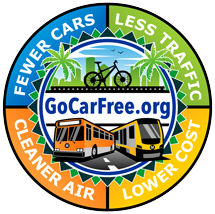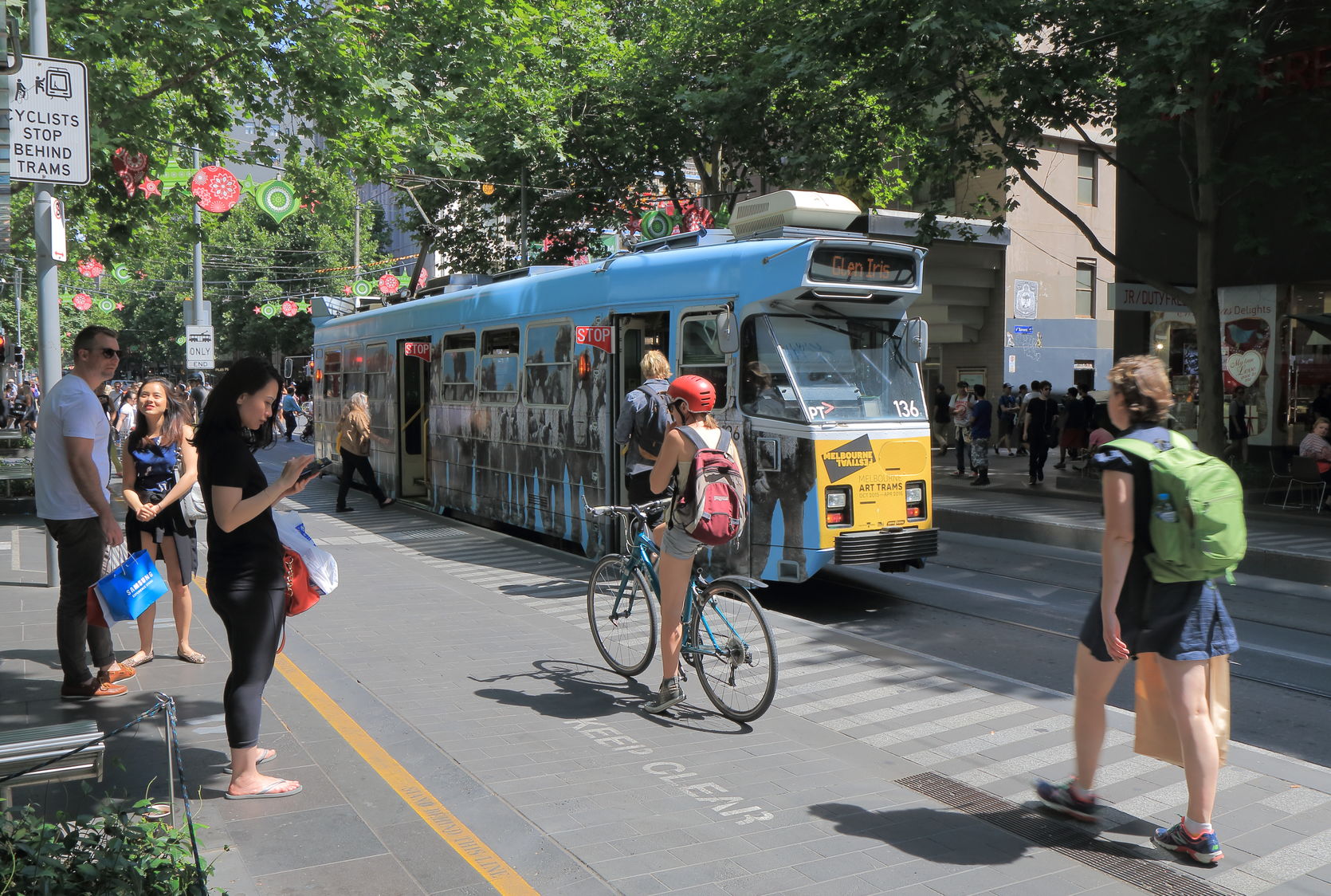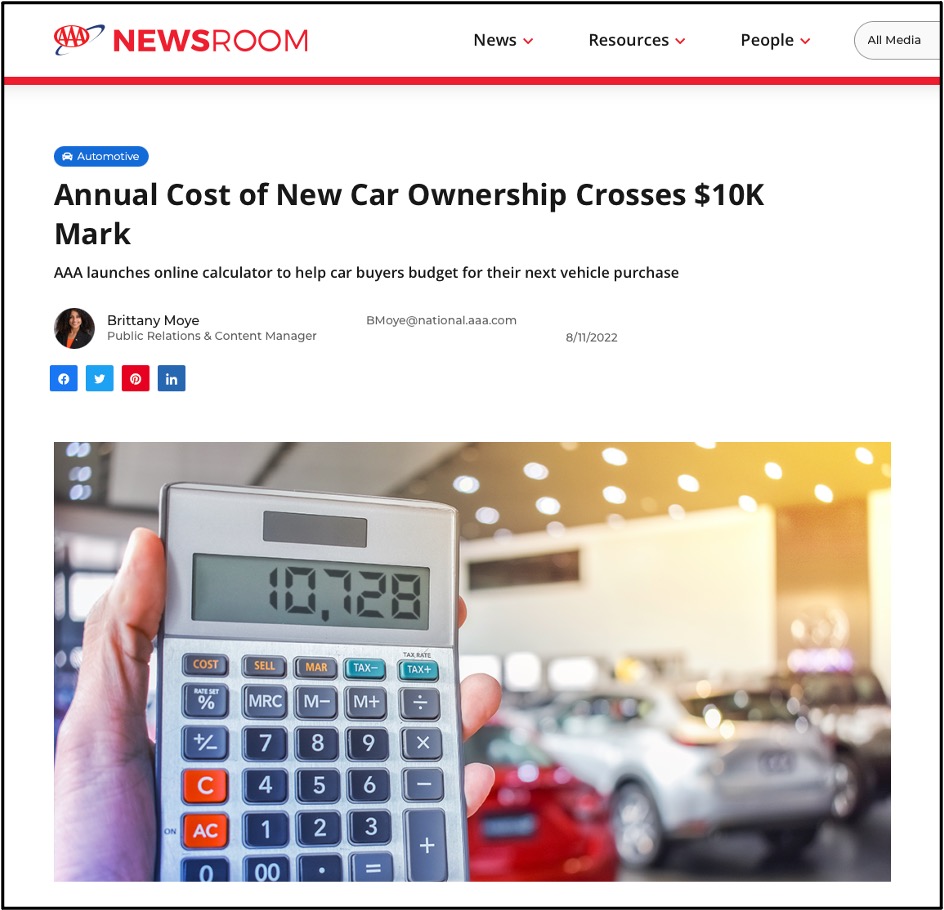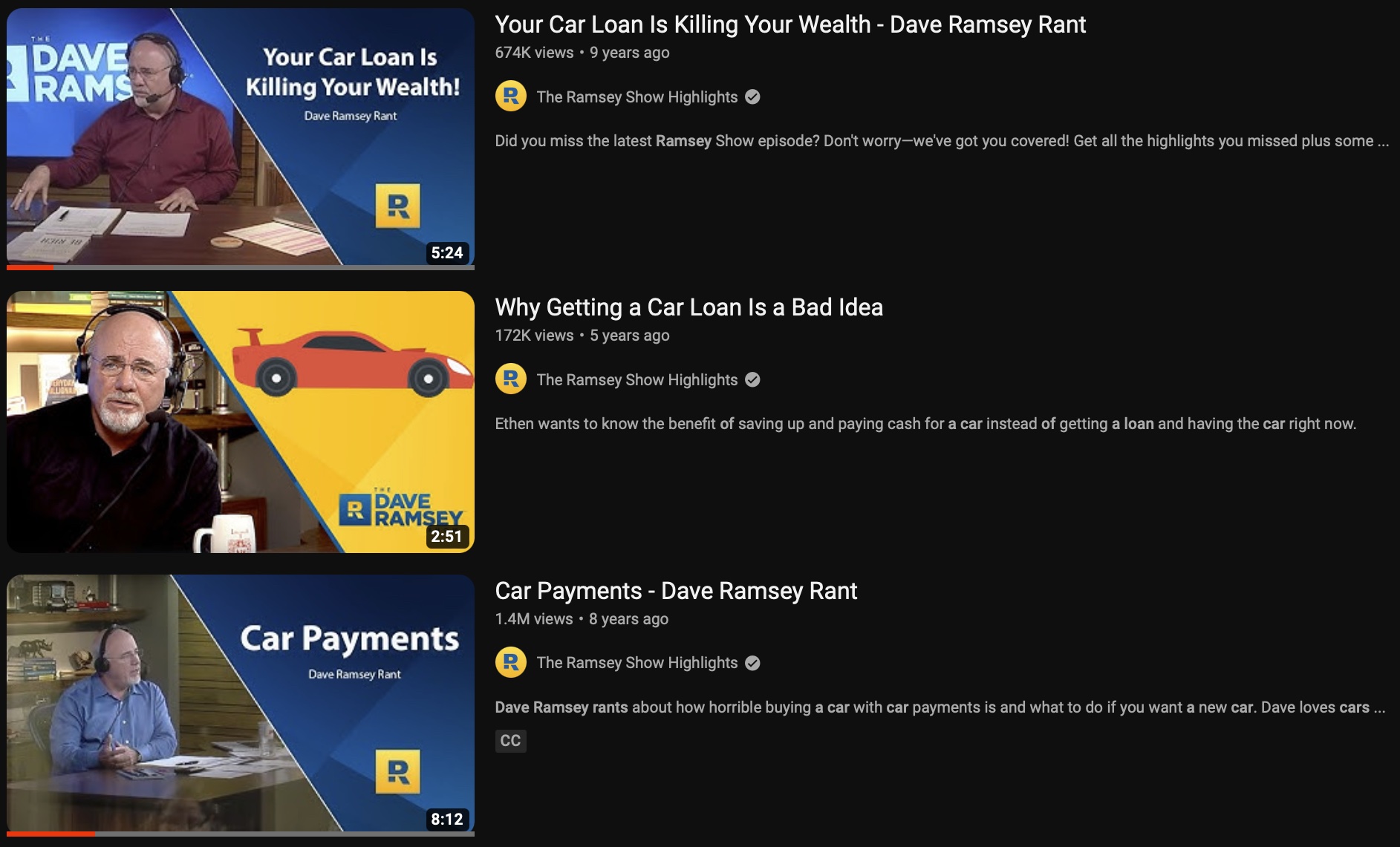
Lesson One
Highway Robbery: The Enormous Financial Cost of Cars
By Chris Balish, bestselling author of How to Live Well without Owning a Car
“Pay off your debts by not buying stuff you don’t need. You don’t need a car. If you’re working in a city, you can either take the subway or use a shared service – try both. Don’t get stuck parking $25,000 into a car. I don’t need it, why should you?”
– Kevin O’Leary (a.k.a. Mr. Wonderful), Billionaire Investor and host of Shark Tank
Ponder this question. Would you purchase a house (or anything else) that loses 20 percent of its value the day you buy it, loses another 10 percent of its value each year thereafter until it has no value at all, requires you to go deep into debt to pay for it, makes you pay interest on the amount you borrowed to buy it, and then forces you to spend hundreds of dollars every month to own it while its value just keeps going down, down, down, while the expenses go up, up, up?
That sounds like a bad deal, right? Yet that is exactly the type of financial result you get when you buy or lease a car.
Car Free Success Story
Because I don’t own a car and haven’t had to make car and insurance payments, or pay for gas, I have been able to save literally about $65,000 over a 6-year period. Instead of spending it on a car, this money has gone into my house and rental property (duplex) that I own, as well as helped me start a retirement account. Plus, once I started commuting by bicycle I lost twenty-five pounds!
Despite what $40 billion of automobile advertising every year would have us believe, owning or leasing a car, truck, or SUV is one of the worst financial decisions most people make in their lifetime. And they make this mistake again and again at a cost of literally hundreds of thousands of dollars. The truth is… cars destroy financial freedom, create mountains of debt, and decimate savings.
This online course suggests a different path, a car free path. Without a car to pay for, practically anyone can become debt-free, achieve their financial goals, and ultimately reach some level of financial independence.
And best of all, practically anyone can live happily without owning a car – or as many people call it, living car free. You can also save a ton of money by living car lite – which means you still own a car but use it less. Maybe you’re convinced you “need” a car, but by the end of this program I bet you’ll change your mind.

“Your car is no longer a chariot of freedom; it’s a money-sucking horse that gets you to the office.”
– Men’s Health magazine
Car Free Success Story
Living car free would be possible for most people if they put their minds to it and are willing to change their routines. I would say I’m saving about $650 a month on the usual suspects: gas, maintenance, repairs, car insurance, payments, personal property tax, license plates, inspection, city sticker. Ahhh, how glad I am to bid it all farewell!
What This Course Is
By following the steps outlined in these lessons, you’ll slash your emissions of greenhouse gases, reduce smog, and do your part to save future generations from the effects of climate change. But going car free is not just about saving the environment. It’s also about saving money. This online program offers a simple strategy that can dramatically improve your finances, your quality of life, and your peace of mind – while also helping the planet.
According to Kiplinger’s Personal Finance magazine, the best way to cut costs and save money is to go after one big expense, rather than a bunch of little ones. This program will show you how. And it’s a lot easier than you think.
This course isn’t written for people who live in New York City, where it’s common not to own a car. The program is designed for people who live in the rest of America: in cities like Omaha, Phoenix, Los Angeles, San Francisco, Boston, St. Louis, Cincinnati, Chicago, Philadelphia, Salt Lake, Seattle, Miami, Sacramento, Washington D.C., and so on. You can also live well without a car in smaller towns like Oxford, Ohio, Columbia, Missouri, and Eugene, Oregon.
Car Free Success Story
My wife and I sold our car and adopted a car free lifestyle. While we had no trouble affording the expense, economically it didn’t make any sense to carry such a high fixed cost. Now I ride my bike to work or take public transit. Once in a blue moon (every three or four months) we’ll rent a car to handle long distances or heavy loads.
We’re saving roughly $7,000 per year by not having a car. That money goes toward paying down our mortgage sooner. We bought a home two years ago and we’ll have it paid off in three more years. Once the house is paid off, we’ll have an additional $15,000 per year in disposable income. While we could afford to buy several cars, we can think of far more fun things to do with that kind of financial freedom.
Needless to say, we recommend a car free lifestyle to everyone, especially people who are struggling with debt, people who are overweight, those who feel socially isolated, and anyone looking to do more for the environment.
Can anyone live without a car? Absolutely! Every circumstance has a car free answer. Got kids? Get bikes with trailers. When the kids are old enough, buy bikes for them. Live too far from work? Move closer to work and ditch the car. Overweight or out of shape? Getting rid of your car will whip you into shape. People too easily buy into the myth that you must drive to survive. And it’s just that, a myth.
Who Should Take This Course?
Anyone who owns or leases a car, truck, or SUV should complete this course. If you have two or more cars, do it tonight!
You should also take this course if:
- You want to do your part to help fight climate change
- You’re fed up with high gas prices
- Inflation is making everything cost more, but your income remains the same
- You have financial problems
- You worry about money
- You have credit card debt, student loans, or personal loans
- Bill collectors are hounding you
- You have too much month left over at the end of every paycheck
- You long for the freedom and serenity of a debt-free lifestyle
With no exaggeration, this program can change your life, even if you go car free for only a short time. But it’s not just for people with troubled finances.
This Course is for You If?
- You’re a student and you want to minimize student loans, but still be able to go on a trip for spring break.
- You’re a renter and you want to save for a down payment on a house.
- You’re a homeowner and want to pay off your mortgage in ten or fifteen years, instead of thirty
- Your goal is to retire from full-time work decades before typical retirement age
- You just want to work less and have more free time and more freedom
“The average monthly payment on a new car was $716 in the fourth quarter of 2022, according to credit reporting agency Experian. That’s an increase of $70 over the previous year. Leasing a new car was cheaper at $578 a month, and owning a used car was the cheapest option, with an average monthly payment of $526. Regardless of your choice, you’re still likely to be paying over $500 a month whether you finance or lease a vehicle. But that’s far from the true cost to own a car.”
– Nerd Wallet, What Is the Total Cost of Owning a Car?, March 2, 2023
Or maybe you feel your life is too complicated. Going car free will dramatically simplify your life in one bold step. You’ll instantly have fewer bills to pay, less paperwork to do, and far less to worry about.
If you’ve already adopted a car free lifestyle, this course will help you maximize enjoyment, minimize hassle, and boost personal fulfillment. And if you follow the steps in Part Three, your social life will soar.
Bestselling author, personal finance guru, and radio host Dave Ramsey is famous for his rants about people over-spending and going into debt. Here is a link to dozens of videos where Dave rants about car payments and how devastating they are to your finances.
Americans Spend One-Fifth of Their Income on Cars
According to the U.S. Bureau of Labor Statistics Consumer Expenditure Survey, the average American spends eighteen cents of every dollar earned on transportation. And 98 percent of that transportation spending is for “the purchase, operation, and maintenance of automobiles.” That makes our cars the second largest expense behind housing. And that 18 percent figure may be low; it was calculated using the average price of gasoline from years ago.
Research has also shown that Americans spend a big chunk of their income on cars. The U.S. Bureau of Transportation Statistics estimates that American households spent an average of $10,961 on transportation in 2021—the second largest household expenditure after housing. Data from the American Automobile Association agrees. For new vehicles driven 15,000 miles a year, average car ownership costs were $10,728 a year, or $894 a month, in 2022, according to AAA. The figure includes car payments, insurance, gas, oil, car washes, registration fees and taxes, parking, tolls, and repairs. When you add loan interest and depreciation the cost of owning a car is even higher.
“The auto is supposed to bring you love, romance, happiness, freedom, space, and ultimately paradise. It does none of those things. Probably that’s why so many folks who drive have road rage.”
– Josh Gosciak, professor, City University of New York
How would your life change if you had an extra $894 a month to spend, save, donate, or invest?

Car Free Success Story
I was seriously thinking about buying a car, but when I crunched the numbers, I realized I would be better off without the car and instead buying a house. The fact that I don’t own a car allowed me to qualify for a mortgage to buy a home on a small non-profit salary. The rest is history. The house is a much better investment than the car would have been. Now I’m on track to retire at age fifty. Forget about the Volkswagen Bug and its dashboard flower. It’s a lie.
Show Me The Money
Let’s consider what would happen if you invested your money, instead of spending it on a car. Are you ready for some shocking numbers? If you went car free and took the $10,728 per year you would have spent to own a car, and instead invested that money at an 8 percent return over thirty years it would be worth $1,341,263.
Can you really earn a reliable 8% on your investments? Who knows. But according to historical stock market returns it’s very possible.
Average Stock Market Returns
So, if you adopt a car free lifestyle over the long term, quite realistically you could become a millionaire. Imagine, a million-dollar net worth just by not owning a car! And that doesn’t include any other savings or 401(k) money you might be investing.
On the other hand, thirty years is a long time. So what if you live car free for a shorter period? Based on AAA’s numbers ($894 a month) and a 5 percent annual return, going car free would still have a dramatic impact on your finances.
Don’t Take My Word For It
One of my favorite personal finance channels on YouTube is Whiteboard Finance. He has lots of great content on a wide range of personal finance topics. Here’s a short video he did about how cars keep people broke.
Car Free Success Story
I spent what seemed like a lot of money at the time to purchase a home in downtown Chicago, close enough to where I work that cycling is easy, I can walk if I must, and I can ride a train or a bus if weather is really foul. However, the big up-front expense turned into a huge bargain over the years. Many others are also now finding the same neighborhood desirable for the same reasons, and instead of an expense my home has become quite valuable. I don’t have an exact value because I haven’t sold it, but I could sell it for many multiples of what I paid.
Spend Your Money on Assets Instead of Cars
“Rule One. You must know the difference between an asset and a liability, and buy assets. An asset is something that puts money in my pocket. A liability is something that takes money out of my pocket.”
– Robert Kiyosaki, Author of Rich Dad, Poor Dad
One of the goals of this course is to encourage people to spend their money on real estate or other investments (appreciating assets) instead of cars (depreciating assets). The difference between these two paths in life cannot be overstated. If you get rid of your car expense and plow that money into rental real estate and investments, you can achieve financial freedom.
Car Free Success Story
I don’t think owning a car makes financial sense. You buy a new or used car and keep plowing money into it, then at the end of the day you sell it for a fraction of what you paid for it. On the other hand, if you choose to spend more money on where you live, you are making an investment in an appreciating asset.
When I invest that money into my home, that asset appreciates. My net worth has been growing at around $2,000 per month for the last two years as I pay down debt and accumulate savings. I couldn’t be doing that if I were spending money on a car. I’m convinced that this is the biggest issue in this discussion that virtually nobody talks about.
The Car Free Way to Financial Freedom
When you own your home outright and you have no mortgage payment and no car payment, retiring from full-time work and achieving financial freedom becomes a realistic possibility. However, there are also other definitions of financial freedom.
Have you ever dreamed of taking six months off work to backpack across Australia? Or maybe taking a year off to write a book? Or quitting your job to go back to graduate school? Sadly, for most people, these things are simply not possible because their monthly expenses are too high, and they don’t have enough savings.
“He that can live sparingly need not be rich”
– Ben Franklin
Car Free Success Story
I work full-time about five months a year. The rest of the year I am “retired.” I figure if I felt that I needed to own a car, I’d have to work full-time year-round.
When you live car free, your monthly expenses drop dramatically, and your savings rate can skyrocket. This powerful combination gives you the freedom to live life on your terms. Hate your job? Then quit and take your time finding a new one. Does your wife want to stay home and be a full-time mom? She can. Would you rather work for a non-profit, even though it would require a pay cut? Do it. This is another definition of financial freedom: the ability to make life decisions not based on financial concerns. When you live car free, you can have this type of financial freedom. It is a rare and precious commodity.
Car Free Success Story
I hear people talking about how they couldn’t live without a car. Then a few conversations later, they’ll complain that their job doesn’t pay enough and they don’t have any money, without seeing the connection. The money I’ve saved from living car free has helped me fund things like bike trips to Ireland and visits to farms in Tuscany, Italy.
You Can Live Well Without a Car
As you can see, there are enormous financial benefits to living car free. But can you really live without one? And can you maintain your normal activities and your normal social life without a car? The answer to both questions is yes.
Car Free Success Story
I finished my master’s degree and paid for my doctorate with money that would have been used to own and support a car habit.
Despite the fact that we live in a car-addicted culture, not only can you live without a car, you can live well without a car. And if you follow the hundreds of tips and strategies in this course, living car free will become downright easy.
You’ll learn how to get to work, how to get your shopping and errands done, how to maintain a vibrant social life, and how to overcome car free challenges with creativity. By following the step-by-step program in this course, you will soon be smiling on your way to the bank, instead of frowning on your way to the gas pump.
The way I see it, my job is to teach you everything you need to know to live in America without owning a car. Deciding what to do with all that extra money you’re about to save is up to you.

Car Free Success Story
I have saved $150,000 since I sold my car, while working only twenty to forty hours a week. I heartily recommend car free living. The adjustment can be tricky to make at first, but the process itself is meaningful and leads to a better life.

